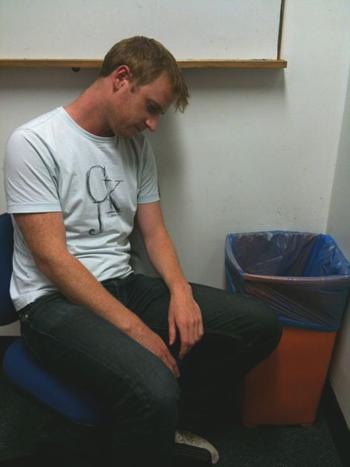Addiction and Laziness
Those who have done the most for their recovery have been early, on a daily basis, to pour headway on their desires to remain clean.

He who fritters away the early morning, its opportunities and freshness, in other pursuits than seeking recovery will make poor headway seeking it the rest of the day – especially newcomers whose addiction had been escalating in an alarming manner. If recovery is not first in our thoughts and efforts, we may become sidetracked, by temptation, toward certain failure. Morning listlessness demands listless recovery.
It is not simply the getting up that puts recovery to the front, but it is the ardent desire which stirs and breaks all self-indulgent behaviors. Early morning promotion may also increase your strength to the desire rather than the quenching of it. This strength in the face of laziness and self-indulgence gives rise to our faith, fullness, and gladness during the labor of the day.
Addiction and Laziness Read More »

 such as: drug addiction, video games, crime, alcoholism, compulsive overeating, problem gambling, computer addiction, pornography, compulsive shopping, workaholism, over exercising, etc.
such as: drug addiction, video games, crime, alcoholism, compulsive overeating, problem gambling, computer addiction, pornography, compulsive shopping, workaholism, over exercising, etc. meetings regularly, stopped going. After a few weeks, her sponsor decided to visit her. It was a chilly evening and the sponsor found the sponsee at home alone, sitting before a blazing fire.
meetings regularly, stopped going. After a few weeks, her sponsor decided to visit her. It was a chilly evening and the sponsor found the sponsee at home alone, sitting before a blazing fire.

 same suspicious look, usually reserved for people who:
same suspicious look, usually reserved for people who: oppose God’s rule seems preposterous. Indeed, it is rare today to find anyone, either within the Christian community or elsewhere, who speaks in praise of weakness. Our understanding of power has become decidedly unparadoxical. We want our power untainted with anything as undesirable as weakness. We prefer peace through strength and salvation through self-reliance.
oppose God’s rule seems preposterous. Indeed, it is rare today to find anyone, either within the Christian community or elsewhere, who speaks in praise of weakness. Our understanding of power has become decidedly unparadoxical. We want our power untainted with anything as undesirable as weakness. We prefer peace through strength and salvation through self-reliance. shopping, religion etc.) are available for those who are not attracted to chemicals. Anesthetics for the emotional pain of life are, and will always be, cheap and readily available.
shopping, religion etc.) are available for those who are not attracted to chemicals. Anesthetics for the emotional pain of life are, and will always be, cheap and readily available.
 crucially important. In addition to the resources of a therapist and/or a support group, having a safe community of people with whom to worship and learn can be a big help.
crucially important. In addition to the resources of a therapist and/or a support group, having a safe community of people with whom to worship and learn can be a big help.